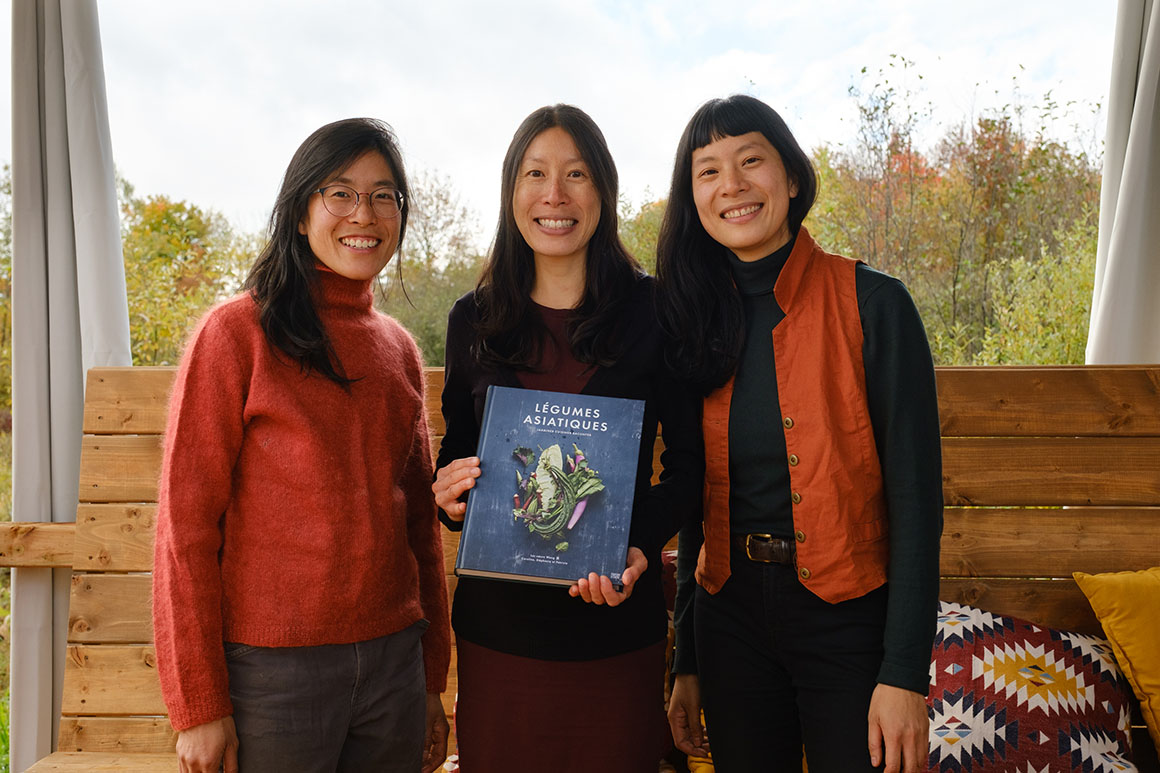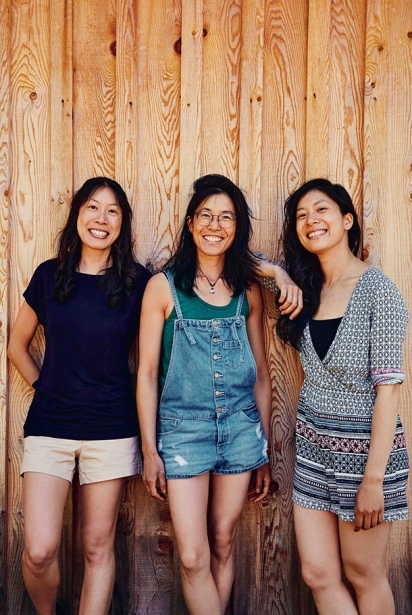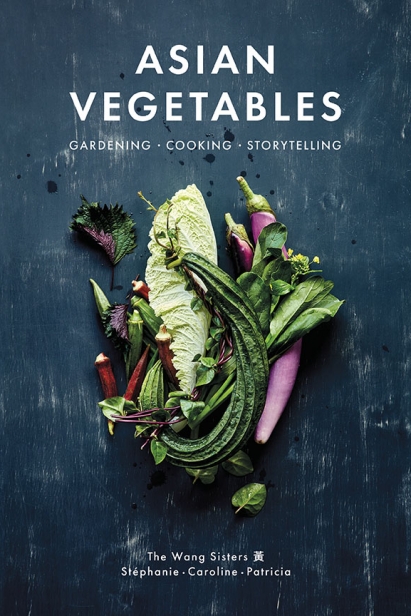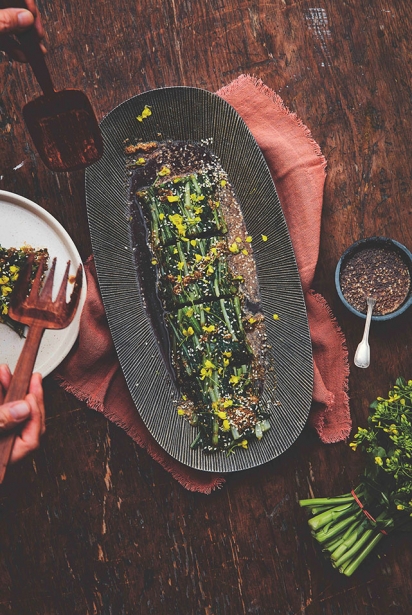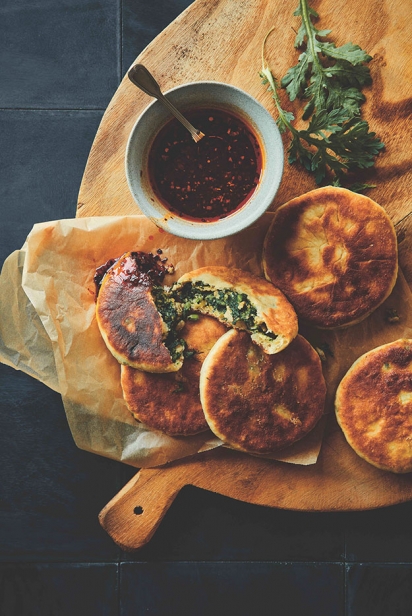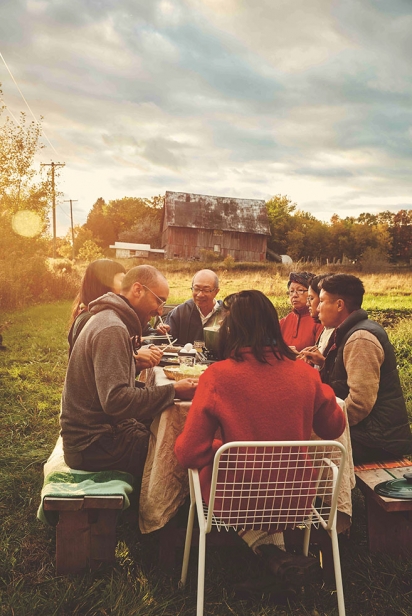An Asian Vegetable How-To
A trio of sisters has banded together to create a cookbook whose mandate was to showcase the lesser known Asian vegetables that sister Stéphanie Wang grows on her farm, while also providing healthy recipes thanks to Caroline, a sister who is a nutritionist. The third goal of the book was to tell their family stories and have the book serve as a tribute to their well-loved mother, something the youngest sister Patricia — a composer, violinist and storyteller — took on as her part of the project.
“We chose 15 Asian vegetables, some more known, like bok choy and Nappa cabbage, but we also wanted to [help] people discover more unknown ones, like Malabar spinach, edible chrysanthemum and stem lettuce,” says Stéphanie, the owner of Le Rizen farm in Frelighsburg, in Quebec’s Eastern Townships. “Stem lettuce grows super well here, it’s just that we don’t know about it. It grows like lettuce and then the stem grows taller until it reaches about one foot and then you can treat it like a broccoli stem. You can make pickles, or stirfry it, or eat it raw. It’s like the heart of the lettuce.”
The Wangs have broken down the book by vegetable and each one has a few recipes, some by Caroline and some by chefs from the Eastern Townships who use the produce from Le Rizen and therefore know first-hand what to do with it. The vegetables featured in the book include bok choy, choy sum, gailan, mustard greens, edible chrysanthemum, stem lettuce, amaranth, Malabar spinach, shiso, okra, Asian eggplant, Asian cucumber, luffa, lemongrass and Chinese cabbage.
The sisters live in Quebec — Caroline lives in Gatineau with her husband and young son. They were in Ottawa recently for a cookbook launch and seven-course vegan dinner produced by their fan, and supporter, Ottawa chef Joe Thottungal, at his upscale Indian restaurant, Coconut Lagoon. Thottungal didn’t use the cookbook for his dishes, rather he put an Indian spin on the vegetables Stéphanie grows.
The cookbook is richly illustrated with produce and farm photos by photographer Virginie Gosselin as well as some historical photos of the Wang family and ancestors. It’s also full of stories about the Wangs’ life and their adventures. And, there’s advice on growing your own Asian vegetables, complete with a chart that describes the necessary growing conditions for the 15 vegetables covered. It tells whether they need protection such as netting, for example, and whether they like the cold or prefer lots of sun. For the record, shiso, amaranth, stem lettuce (also called celtuce), Malabar spinach and edible chrysanthemum are the easiest to grow in this area. And for those who prefer to buy their vegetables over growing them, there’s a list of where they’re likely to find them (whether at an Asian grocery store versus a supermarket.) And if that’s not enough, the book also includes a discussion of Cantonese, the Wangs’ native tongue.
Each of the sisters inherited a love of gardening from their mother, Nicole, who died in 2007. When she died, their father, Henri, had to learn to cook to feed his three teenage daughters and there’s a tribute to both parents in the book, which is dedicated to their mother. Henri continues to cook to this day and, after having raised his girls in Montreal, now lives in the Eastern Townships and helps Stéphanie with the farm, including showing up at market stalls and selling the sandwiches he makes with her wares.
“He and his partner come every Saturday at a certain market in the summer to help me sell,” Stéphanie says. “They are very committed to helping me. They also do deliveries for me to Montreal.”
The project, which includes a French version of the book that was published last year, had its genesis when Stéphanie was first starting out on her farm — which is limited to one acre yet keeps herself, her partner and two employees busy. She was coming up against issues because her potential clients didn’t know what to do with her produce. So Caroline offered to share her research on the vegetables’ nutritional value and, as a result, the Le Rizen newsletter was born.
“During this project, Stéphanie and I have been able to discover and deepen also our knowledge about these vegetables,” Caroline says of her role in writing the book. “I talk about the vegetables in the book, I present them and tell you how to prepare them. I also I read through all the recipes, to make sure everything is there and everything is consistent. It was a real labour of love.”
In addition to selling her vegetables, Stéphanie processes some of them into products such as kimchi that she sells on the farm and through some vendors in her area. She’s currently looking for an Ottawa retailer for her kimchi.


